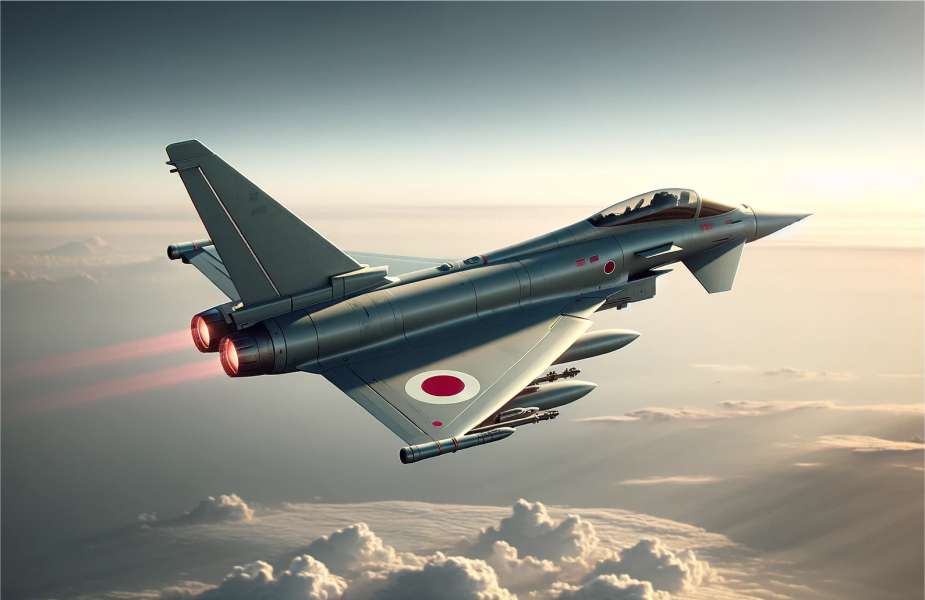Japan Approves Sale and Export of His Next-Generation Fighter Jets
The Japanese government has recently given the green light to market its next-generation fighter jets, co-developed with Great Britain and Italy, to other countries. This decision marks a significant shift from the pacifist approach the country adopted after World War II. It is part of a broader effort to strengthen Japan's defense industry and assert its role in international security.
Follow Army Recognition on Google News at this link

AI-generated illustration of Japan's future fighter aircraft. (Picture source: Army Recognition)
To facilitate these international arms sales, Japan has updated its guidelines on the transfer of military equipment and technologies, now allowing the sale of co-produced lethal weapons to third-party countries, beyond its initial development partners.
Since the end of World War II, Japan has enforced strict restrictions on arms exports, in line with a constitution focused on pacifism due to its aggressive military past and subsequent defeat. However, in response to increased regional tensions, notably with China, Japan has gradually relaxed these regulations to play a more assertive role in the global defense arena.
This initiative marks the first time Japan has allowed itself to export lethal weapons that it co-produces. In collaboration with Italy and the United Kingdom, the project aims to develop an ultra-modern fighter jet to replace the aging F-2s designed in the United States, as well as the Eurofighter Typhoons used by the British and Italian armed forces. This project, known as the Global Combat Air Programme (GCAP), is expected to produce a jet that will give Japan a technological edge over regional rivals such as China and Russia, with deployment planned for 2035.
Criticism has been leveled at Fumio Kishida's government for moving forward with the fighter jet project without adequate public explanation or formal approval for such a significant policy change. In light of these concerns, the government has clarified that, for the time being, export permissions will be limited exclusively to the jet project, prohibiting any sales in the context of active conflicts.
Moreover, the Japanese government has committed to ensuring that the revised guidelines on arms exports remain specific to this jet, requiring cabinet approval for any future changes. Sales will be limited to the 15 countries with which Japan has established defense partnership and equipment transfer agreements.
The cabinet's endorsement of the jet sales initiative reflects a strategic desire to prevent Japan from being relegated to merely a supporting role in the development and manufacturing of the new device. This decision coincides with Kishida's upcoming state visit to Washington, where he is expected to emphasize Japan's commitment to deepening military and defense industry partnerships, thereby signaling a notable shift in Japan's post-war defense posture.
- Hits: 3071
















